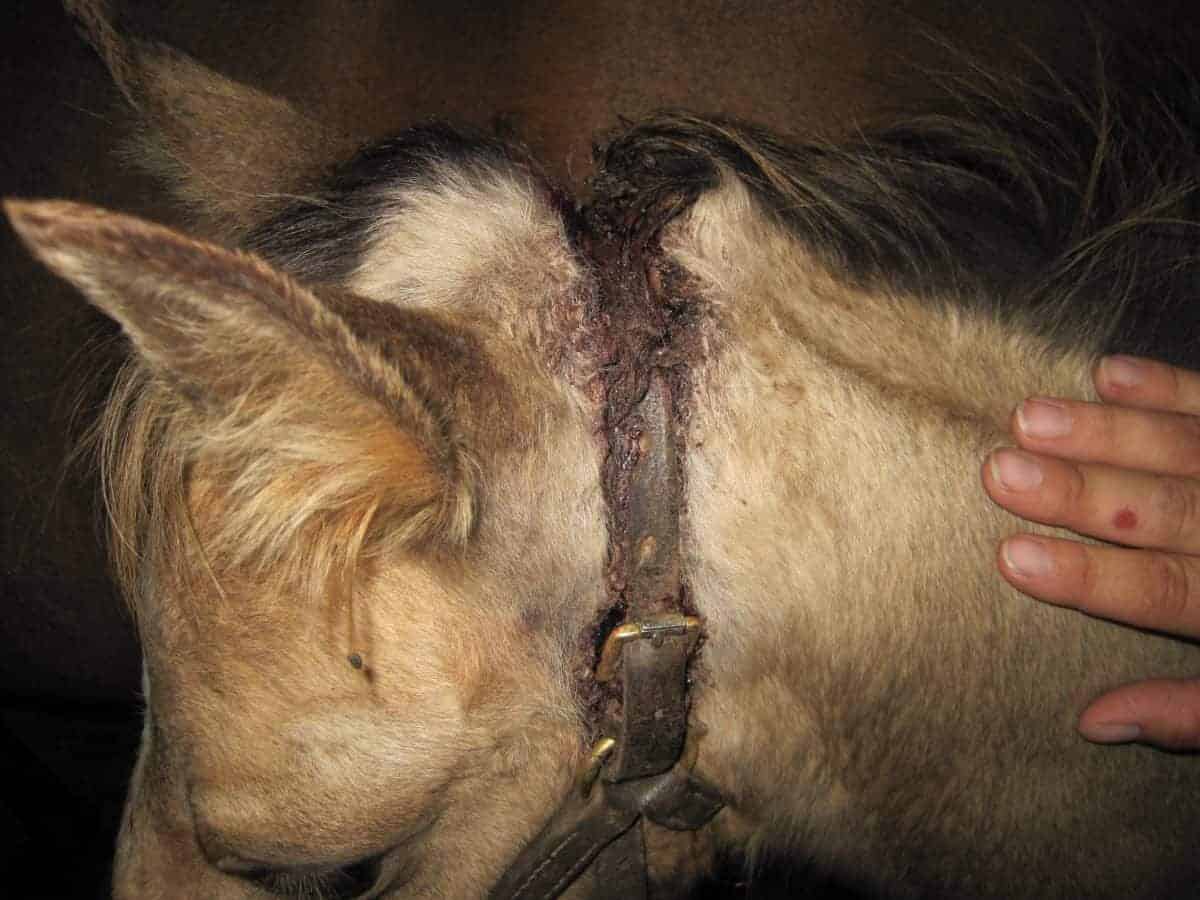Foal’s headcollar found embedded in his face

An owner who neglected a mare and foal with horrific consquences has been banned from owning or keeping equines for three years.
Embedded in his nose
In August 2013 World Horse Welfare and the RSPCA were called to attend to a mare called Ivy and her two-month-old colt Star, in a field in Hatfield, Herts. The foal’s headcollar was embedded into his nose and poll and his nasal bone had been damaged as a result.
According to Nick White, World Horse Welfare’s field officer, Star was attempting to suckle from his mother but had very laboured breathing.
“The facial part of his nose was very swollen and infected above and below the noseband, as was his jaw,” explained Nick. “There was thick dried and encrusted blood, as well as fresh blood and puss weeping from the wounds. I saw too that some of the metal parts of the head collar were also embedded into Star’s flesh.
Infected by flies
The foal’s headcollar had been put on when he was first born and not adjusted or replaced as he grew.
“Star had endured this unforgiving head collar eating into his flesh and bone, plagued and infected by flies, during the hottest part of the summer whilst, like all other foals of his age, he continued to grow,” added Nick.
Both Star and Ivy were seized and taken to the Royal Veterinary College where Star received urgent surgery to remove his head collar and treat his injuries. The horses were then signed over to World Horse Welfare for further rehabilitation.
Suffering and trauma
Pascale Musk from Smallford initially pleaded not guilty to animal cruelty charges, but changed her plea to guilty. She was charged with failing to check, adjust or remove a head collar which caused infected wounds and a deformed bone. In addition to a three-year ban Musk was ordered to undertake 100 hours of unpaid community service work and made to pay £500 costs and a £60 victim surcharge.
“This was an experienced horse owner who knew that there was a problem but did nothing about it,” said RSPCA inspector Tina Ward. “The foal could have been prevented from suffering and trauma if the defendant had simply sought help or advice and loosened the collar.”
Permanent scarring
Star will be left with permanent scarring and damage to his facial bones but Claire Phillips, farm manager at Glenda Spooner Farm in Somerset, said it will not prevent him from enjoying a normal life.
“He had been in a lot of pain and had never been handled so was fearful of humans when he first came in,” said Claire. “In a matter of days though he became more confident and allowed us to clean his wounds with minimal fuss.”
Star should soon be ready for rehoming with an experienced home, where he can continue his education.






